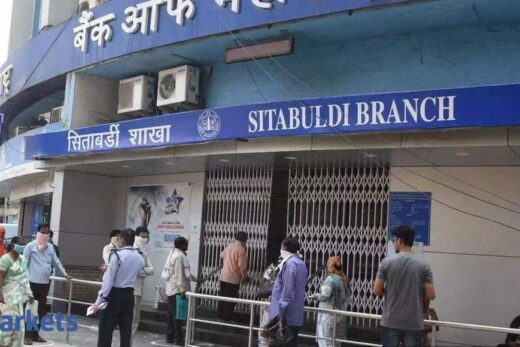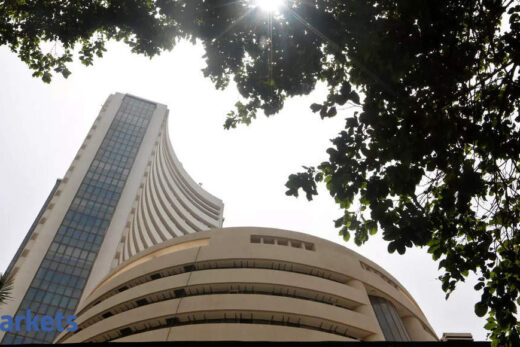has managed to pip even Unilever in terms of market capitalisation, raising it to the fifth slot. What is a private sector bank like ICICI Bank’s performance telling you about what these corporate facing banks are poised at in terms of growth going forward?
We cannot talk about individual companies but we have been very vocal over the past few quarters and past few years that we like the corporate banking space a lot. India has gone through a big corporate NPL cycle and if you look at these results, one clear trend stands out. The corporate NPL cycle seems to be well and truly over.
All the results that have come out till date show that while there has been some increase in restructuring and some of the retail NPLs have gone up because of the Covid but the corporate side has fared really well. If you look at what is really happening on the corporate balance sheets in India, all the bigger corporates have been deleveraging. BSE 500 equity today is almost at 10-12 year low and it seems like we are set for the leveraging cycle now as the deleveraging or the NPL part of it almost seems to be over. Therefore we have been very sanguine about corporate banking in India. We continue to like that space a lot. We think this is just the beginning of the corporate leveraging cycle. In a few quarters, Indian corporates will start leveraging again.
This quarter’s result shows credit growth on the corporate side was muted and only retail and housing and some of the parts like SME and agriculture showed growth. That would also change in a few quarters from now. Overall, it seems like in the banking sector, leadership has moved from retail banking segment which was clearly the leader during 2016-2019 and also to corporate banks now.
One big change that has happened and which went under appreciated is that the distinction between corporate banks and retail banks has lessened so much. Between 2016 and 2019, banks were trying to come out of corporate banking. Today, the balance sheets of the top four-five banks in India show that almost all of them are 50-55% retail and 40% corporate. Therefore the balance sheets have also converged a lot and the entire distinction between corporate banking and retail banking has faded away. Having said that, we still believe banks which have suffered a lot during the 2016-2020 NPL cycle will benefit a lot more compared to their retail counterparts in the next few years.
Would small banks like AU SFB or or an old private bank like Federal Bank benefit in this uptick in the corporate cycle?
The overall trend seems to be that larger banks are able to gain market share a little bit more purely because of the investments in technology that are required today. The technology changes that are happening, the customer franchise banking is becoming more of a network business today because of technology and therefore larger banks have that advantage of having a larger customer franchise which you can cross sell to.
Having said that, one must remember that a rising tide lifts all the boats and while one has to be selective and it has to be a little bit more subjective when it comes to smaller banks and mid-sized banks, we are now starting to believe that it is time to look at some of these small and midcap names as well. Again the underlying belief here is that the banking cycle is changing and therefore the next two-three years will be good for the banking sector as a whole.
One must look to add a little bit of more risk, more beta when the cycle is going good and that is where midcap and smallcap banks have a role to play. Some of them have suffered a lot in last few years and some of them have changed a lot. Some of the mid-sized banks have made their balance sheets and deposit base more granular. They are now more CASA focussed versus what they were a few years back. Their retail deposit as percentage of liabilities has gone up sharply over the past few years. So there has been substantial progress in terms of balance sheet improvement even in some of these mid and small sized banks; they will reap the benefits of the changes they have made over the past few years if the next cycle turns out to be good.
Since you are managing a banking fund, also comes under that and given that is where all the action is and as the IPO action will start soon, do you see fintech coming in your portfolios?
If you look at what is happening in the world, clearly there has been a value migration from pure banking entities to some of these fintech entities whether they are in payment systems or whether they are on the internet selling part of financial products. I think the same would happen in India. The advantage that banks and financial entities have in India is that they have already seen some of that happening across the world and therefore they have learnt their lesson from it, They are surplus with capital and if required, they will be able to make a few acquisitions here and there to strengthen their technology portfolio.
Overall, while there would be some value migration, fintech will increasingly play an important role in banking and financial portfolios and probably in all diversified portfolios as well. However, in the value migration that has happened across the world, India might see a limited addition. We will not see the full scale migration that the world has seen purely because Indian banks and entities are not ready and secondly, RBI has been more steady in going about opening up the space than other regulators in the world have been.
Where do you stand when it comes to PSU banks versus private banks?
From an overall perspective, we believe there is immense value in PSU banks today. Earlier in the 2016-20 cycle, all the corporate facing banks suffered a lot because of the NPL cycle that happened and PSU banks were at the forefront of it because in 2016, their balance sheets were primarily corporate and housing and agriculture. These are the three segments where the PSU banks are traditionally strong and therefore they suffered a lot.
When this cycle reverses, their margins will trend up because all the interest reversals that have happened over past few years will come back to a certain extent. Plus the top three-four banks have done a good job in protecting their market share as well, especially when it comes to the liabilities part in a rising interest rate environment. Banks with stronger CASA and stronger retail deposits will have more pricing power and the margins will look better than entities with wholesale borrowings and PSU banks are typically all retail borrowings. They are not into wholesale borrowings a lot. Today they are close to zero in wholesale borrowing but even traditionally, they are not much into wholesale borrowings.
So from an overall perspective and looking at where valuations are today of the market and not of the banking sector, we believe there is immense value in some of the large PSU banks today and that should play out well. If the banking cycle turns out to be the way we are envisaging, and if credit cycle comes back to double digits in a few quarters from now, PSU banks will look much better than what they are today.
A few months back there was this fear about how the fintechs are disrupting banks. Has that fear ebbed off? Is it a case of the banks having really upped their game in digital?
Yes, I guess that fear was emanating more from the global perspective, having seen what has happened across the world. As I said earlier in developed markets there has been a lot of value migration from banks to fintechs, especially in areas like payments, internet selling and stuff like that but in India, banks have already seen all that and they are mentally and behaviourally prepared for that.
Second, Indian banks, especially on the balance side, are capital flush and capital is easily available to them at all points of time. Unless there is a liquidity crisis scenario, capital is not a problem for the Indian private banking sector. Therefore they have the wherewithal to invest in technology and to acquire some technology companies if required. We truly believe that Indian banks and the large financial entities would not be impacted as much as what we have seen in some of the global banking systems. Therefore that fear was a little bit unwarranted right from the beginning and that is what we believe.
The market is now coming to the same conclusion that once the credit cycle reverses and NPL cycle is over, banking will have a decent time going ahead and even if fintechs come and take away some of the market share, the market is so large and India is such a underpenetrated country in so many segments in financials, that there is probably a pie for everyone to eat a little bit. We truly believe the Indian banking system would not be disrupted as much as what we have seen globally. But we are not suggesting in any manner that fintechs would not create value, I think there would be substantial value creation from some of the niche business models even in fintechs but probably the pie would increase rather than value migration from one area to another.



